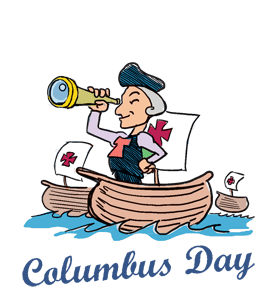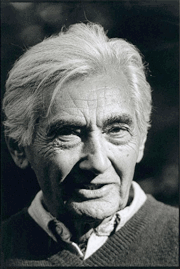Columbus Day Honors The History of Genocide

VISIT MY NEW WEB SITE:
Contact at [email protected].
Columbus Day was commemorated on Monday. The US federal holiday should have been abandoned long ago. It never should have been established in the first place.
The arrival of Columbus in what’s now the Bahamas and Hispaniola was followed by the mass slaughter of around 100 million native people – the most horrific genocide in human history, continuing for 500 years, before and after what’s now America became a nation.
Columbus sought gold, other riches and slaves for Spain. A second voyage followed the first. Native people were slaughtered throughout the Caribbean.
No gold was found, just hundreds of human beings taken captive, those surviving the journey to Spain sold like sheep or goats, treated like vermin.
Arawak people in the Caribbean deserved better. They were friendly and receptive to new arrivals, greeting them with gifts, food and water, making them feel welcome, much like Native Americans, leaving them vulnerable to the viciousness of conquerors – their first exposure to the scourge of Western civilization.
Swords and daggers later were guns, cannons and other weapons against their peaceful way of life, crude weapons used for hunting, not warfare.
Beginning over 500 years ago, horrors never stopped. A serial killer became an American hero.
In Chapter 1 of his People’s History of the United States, the late historian Howard Zinn explained Arawaks “were much like Indians on the mainland, who were remarkable (European observers were to say again and again) for their hospitality, their belief in sharing.”

Howard Zinn
They “swam out to greet” their arrival. Columbus took “some of them aboard ship as prisoners because he insisted that they guide him to the source of the gold.”
There was none. He hadn’t reached Asia, as he claimed, marveled at the generosity of native people, willing to share anything they had.
His bounty consisted of hundreds of slaves. Others “were hunted down with dogs and killed,” said Zinn.
“Trying to put together an army of resistance, the Arawaks faced Spaniards who had armor, muskets, swords (and) horses.”
“When the Spaniards took prisoners they hanged them or burned them to death. Among the Arawaks, mass suicides began, with cassava poison.”
“Infants were killed to save them from the Spaniards. In two years, through murder, mutilation, or suicide, half of the 250,000 Indians on Haiti were dead.”
Slaves taken to Spain “were worked at a ferocious pace, and died by the thousands.” Columbus arrived in 1492. “By 1550, there were five hundred (left).”
“A report of the year 1650 shows none of the original Arawaks or their descendants” remained – all exterminated or enslaved, those surviving the rigorous voyage. Many perished.
“Total control led to total cruelty. The Spaniards ‘thought nothing of knifing Indians by tens and twenties and of cutting slices off them to test the sharpness of their blades.’ “ Zinn quoted Bartolome de las Las Casas, a priest participating in the conquest of Cuba.
By 1508, “over three million people had perished from war, slavery, and the mines,” he wrote. “Who in future generations will believe this? I myself writing it as a knowledgeable eyewitness can hardly believe it…”
Zinn said “(t)hus (was) the history, five hundred years ago, of the European invasion of the Indian settlements in the Americas.”
By some estimates, eight million human beings perished. “When we read the history books given to children in the United States, it all starts with heroic adventure-there is no bloodshed-and Columbus Day is a celebration.”
High school and higher education provide some hints of the horrors officials in America tried suppressing throughout the country’s history.
Columbus historians providing a glimpse into what happened glossed over the horrors, “bur(ied) them in a mass of other information” considered more important, Zinn explained – telling readers:
“(Y)es, mass murder took place, but it’s not that important. It should weigh very little in our final judgments; it should affect very little what we do in the world.”
This distortion of history tries justifying the unjustifiable. It’s too late to undo what happened. It’s easy to say unspeakable atrocities were a “necessary price to pay for progress,” said Zinn.
History is told “from the point of view of governments, conquerors, diplomats (and) leaders.” No one speaks for victims.
“(W)e must not accept the memory of states as our own,” Zinn stressed.
Albert Camus once said thinking people should not be on the side of executioners.
Long ago, belligerents had swords, then rifles and cannons. Today nations have vast armies, supersonic warplanes, ICBMs and thermonuclear bombs able to annihilate millions with a single detonation over a large metropolitan area.
It took 500 years to slaughter 100 million native people in what’s now the Americas. Today it could be done in days with enough WMD detonations.
Humanity has come a long way in honing its killing skills, surviving them given scant attention.
VISIT MY NEW WEB SITE: stephenlendman.org (Home – Stephen Lendman). Contact at [email protected].
My newest book as editor and contributor is titled “Flashpoint in Ukraine: How the US Drive for Hegemony Risks WW III.”
http://www.claritypress.com/LendmanIII.html
Listen to cutting-edge discussions with distinguished guests on the Progressive Radio News Hour on the Progressive Radio Network.
Featured image is from WinCalendar.

